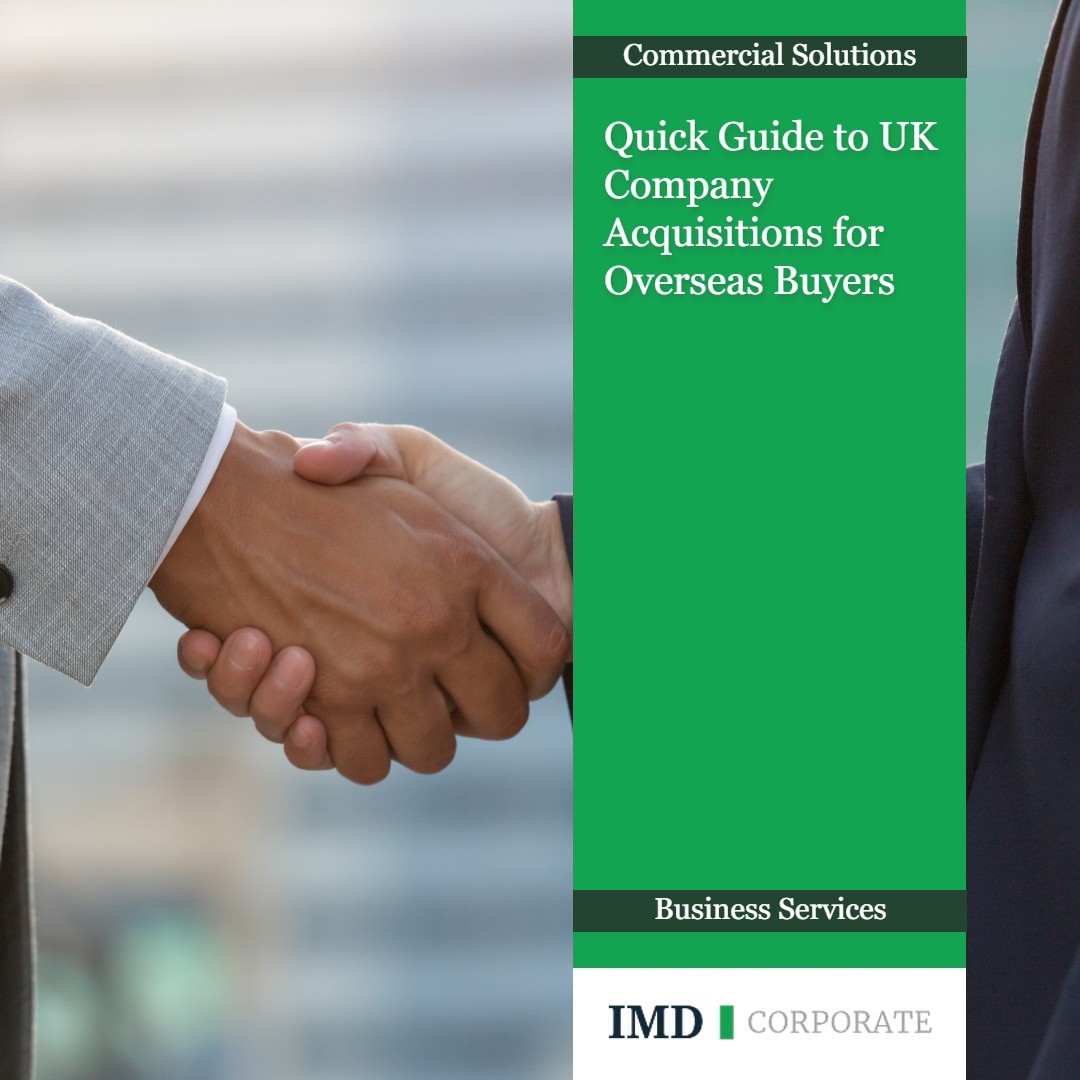
If you are considering acquiring a business that operates in the UK, you will need to have a good understanding of the process. This is because the law and process may differ from your home country or the country where your business is situated. In this quick guide, we provide an overview of buying a business in the UK. For advice specific to your circumstances, contact our experienced team.
The UK operates under a common law system, which means that the Courts are at the heart of how the law operates. The judiciary will interpret, clarify and create case law based on cases that have come before – referred to as precedent.
An important feature for the purpose of acquiring a company in the UK is freedom of contract and ‘buyer beware’. As a result, having an experienced and discerning lawyer is vital.
Under the common law system, there are some established rules restricting what the buyer and seller can agree. However, generally, it is up to the parties to decide the terms of sale, including the price. While such flexibility has its benefits, it means that the process of carrying out due diligence can be quite involved, and contracts need to be very carefully drafted to protect your position.
There are two main options for the structure of your purchase: a share purchase or an asset purchase. Which of these you choose will depend on the specifics of what you wish to buy, the practicalities and running of the business and the tax implications for both parties.
When operating under a share purchase acquisition, the buyer acquires the company, including all of the assets and all of the liabilities. You will take on all of the employees too. It may appear to customers, or clients and suppliers as if nothing has changed, which can be beneficial for the continuity of business. However, you may need to alert certain parties that control of the business has changed where required, for example, long-term agreements of financing contracts.
With an asset purchase, you are only buying certain assets (and potentially liabilities) which you agree to take on. Everything else remains with the company. The exception to this rule is employees, as UK employment law protects employees under the Transfer of Undertakings (Protection of Employment) regulations (TUPE). As a result, you may be required to transfer employees to your new business on their current terms and carry out consultations. Our specialist employment lawyers can advise you on this.
Possibly the most important part of the process as a buyer is carrying out due diligence. When you buy a UK company, you operate under the principle of buyer beware, meaning that you need to gather as much information as possible to find out exactly what you are taking on.
Your lawyer, along with the assistance of other skilled professionals, can help you to determine the strengths and weaknesses of the business, determine the right price to offer, identify risks, outline the best structure and deal with any other contractual or third-party issues which may arise during the due diligence process.
The buyer’s lawyers will normally prepare a detailed document covering all aspects of the company, including its constitution, employees, contracts, licences, property, intellectual property and IT systems. Each area will be evaluated, and the lawyers will provide a report highlighting areas of concern.
The buyer’s accountants will prepare another report focussing on the financial performance of the company. You may also require other specialist reports to make an informed decision, such as property surveys, health and safety investigations or environmental audits.
Warranties are contractual assurances about the sale and are often the most negotiated aspects of a company sale. The seller will prepare a disclosure letter that qualifies the warranties with factual information. If an issue is identified during disclosure, it can be dealt with through an adjustment to the contract.
The seller will normally also provide certain indemnities, which is a promise to reimburse the buyer, protecting them against specific liabilities.
Our lawyers specialise in transactional work and in getting the deal done whatever it takes — provided this is in your interests. When problems arise, we find ways to overcome them, and when the pressure is on to conclude a matter quickly, we have the capacity to upscale resources so that any deadlines can be met. For more information, please contact Olexandr Kyrychenko on 0330 107 0106 or email us at business@imd.co.uk.
This article is for general information only and does not constitute legal or professional advice. Please note that the law may have changed since this article was published.